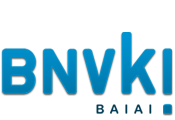As in previous years the study association CognAC organised ACAIS (the Annual CognAC Artificial Intelligence Symposium), a symposium dedicated to showcasing the latest developments in the field of artificial intelligence to its attendees and inspire them for future projects.
This year, the theme was AI & Language: a growing and interesting field within Artificial Intelligence. With AI getting more and more advanced, it is now also being used in a lot of language related systems. Think about topics such as speech recognition, text mining, text generation and language recognition. Seven language and linguistics researchers and one company from all over the country (and even Europe) presented their latest work.
During the day, we had two key note speakers and six talks divided over two parallel tracks. Before and after the talks, the day was opened and closed by Wouter Bulten – an alumnus, chair, and now 3 times host to ACAIS.
At the start of the day, we welcomed all participants with coffee and tea in the beautiful Lindenberg in Nijmegen City Centre with a view on the Waal. After the opening, we had the first talk from Florian Kunneman, a researcher and teacher at Radboud University, about anticippointment and text mining cases. Since it was already lunch time, the next stop was sandwiches, coffee and tea, and some fine company. With 24 students from Sweden visiting us that week, we had a very international party. After the lunch the tracks started, first choice: Antal van den Bosch (Royal Netherlands Academy of Arts and Sciences & Radboud University Nijmegen) about Language Transplantation or Dirk Heylen (University of Twente) about Embodied Conversational Agents. They talked about information assistants such as Siri or Alexa, the AI-based film Her and Attentive Virtual Humans (and Robots).
The second track, before the next short coffee, tea, and soda break, was again a tough choice. In the Valkhofzaal we got to listen to Antske Fokkens (Vrije Universiteit Amsterdam) about applying text mining technologies for exploring big data. In the Red Room upstairs Henriette de Swart from University of Utrecht told us about time in translation and how we detect patterns of temporal reference across languages with the help of a computational approach to parallel corpora.
The third and last parallel track we got to enjoy either Kees van Deemster (University of Utrecht and University of Aberdeen) who talked about lying – the view from natural language generation and Arjan van Hessen (University about Twente) who told us more about the field of Speech Recognition.
The day ended with a talk from Devoteam presented by Roger van Daalen. Devoteam is an IT consulting group who combine consulting and technical solutions. They told us about the use of AI & Language in their company and thus in practice. After the following closing from Wouter, the committee got an applause and we made our way to the borrel and following dinner also at Lindenberg.
Overall, everyone learned a lot, had fun during the talks, and got new concepts about what AI & Language consists of these days.
